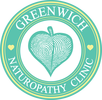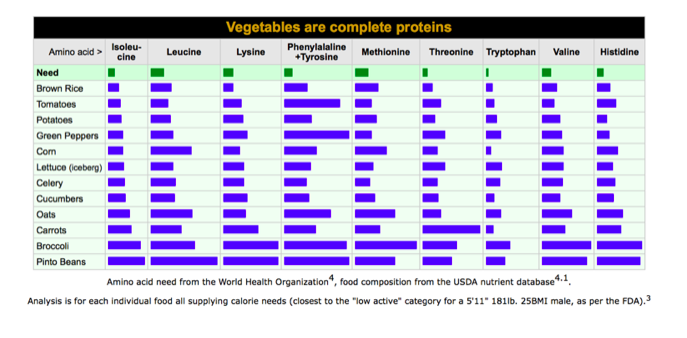|
Following on from her article on the myth of the complete protein we fact-check some other popular statements about meat.
"High protein meat diets are good for you." False: High protein meat diets contribute to a high turn over of the abrasive and irritating uric acid, which in hight quantities can inflame and damage tissue. The deposits from this acid have been shown to contribute to arthritis in the joints and muscle (myositis). Uric acid is also well-known for its link to gout. Protein is essential but when consumed in the form of meat, it is worth remembering that you are consuming some toxic stuff too. "High protein meat diets are good for building up muscle." False: Can you absorb meat protein effectively? With protein in meat, the body has to work hard to break it down into simple amino acids before it can be used. Protein, and all nutrients, act differently in a acid environment to an alkaline environment. In an acidic environment amino acids bind with minerals, metals and fats causing toxic build up in the body. Proteins are highly acidic forming, lowering the PH balance of the body. The body can then leach minerals from bone and muscle to buffer this acidity. So, yes, you can bulk up on high protein meat diets but you are bulking up on toxicity as well. Stacked amino acids are not necessary to normal bodily functions. This means muscle gain put on by high protein diets will be lost during detoxification. "Undigested flesh can rot for days weeks and years in the intestines" True: Expensive clinical trials - the gold standard of ‘health’ prescriptions by Big Pharma - on the indigestibility of meat by humans have yet to be deemed financially rewarding enough to warrant a full investigation into this claim – so lets look at the evidence we do have available:
"Eating meat causes body odour." True: It might sound macabre but then we are talking about flesh… When we consume flesh, it rots within us. Meat flesh can become impacted on the intestinal wall causing the lining to decay along with the meat. "Eating meat can feed the parasitic kingdom." True: Viruses, bacteria , flukes and the mother of all parasites - worms - feed on waste from flesh protein digestion. Parasites also have an affinity for weakened and damaged tissue – it is their job to decompose it. You have probably seen a decomposing dead animal with grey-green flesh. Not to put you off your sausages, but pretty similar, in fact to the colour our meats would look if the meat processor didn’t treat the dead flesh with colour additives like sodium nitrates and nitrites to make it look deceptively pink and more appealing than the sickly grey colour of death… Yep. Morbid. Because humans can eat like carnivores, we must therefore be carnivores. False: This doesn’t just pose a moral question, but one of logic: mere behaviour does not equate to suitability or ‘naturalness’. Unlike many other living things we evidently possess the power of imagination, the ability to define ourselves, to make choices. We also possess the distinct ability to wipe out life on earth as we know it. There are many things we can do as a species like… shooting each other, lobbing hand grenades, tailgating or trolling someone. Well, ‘I can, so why not…’ has never really been a valid reason to do anything. The power of choice is only as potent as the awareness granted the subject to choose. Transitioning from a meat to plant based diet can be challenging on an emotional, mental and physical level. Seeking the support of a nutritional therapist is highly advised.
0 Comments
High-protein meat based diets have been promoted by our top health professionals for generations. Huge swathes of populations have depended on these protein guidelines for reliable, evidence-based, health advise. Naturopath Nutritionist, Jessica House, separates fact from fiction as she debunks some of the theories around protein in our diets. Myths are a staple diet of mankind and have been for centuries, especially those surrounding food; the formula-milk myth, the bread-fibre myth, the calorie myth... the list goes on. There are many 'facts' we are told about the nutritional value of our food that because of the authoritative voices spouting them, such as doctors or a newspaper, we see as binding, gospel truth. The myth I am putting on the table here is the complete protein myth. What exactly is it? It is the idea that meat is the most effective and bountiful source of protein and therefore our bodies need it; that we need to eat meat for optimum health. It is often the first reason of objection to vegetarianism, veganism or a plant-based diet from our meat-eating friends. The problem with this kind of imperative language is that is effectively removes our power of choice. You have to eat meat, is either the overt message or the subtext that comes with this ubiquitous myth. It is true that protein is very much essential. The word protein comes from the Greek ‘prōtos’ which means ‘the first one’. Protein is a fundamental structure; an essential part of all living organisms. It is made up of amino acids, the bricks of the structure. The question is, when building your fundamental structure, do you want use the bricks from an old, already built house - the grouped animo acids from animals? Or, do you want new, simple, easy-to-build bricks - the simple amino acids from plants? The complete protein theory (or myth) states, paradoxically, that you should use the old bricks from the old house to build a new, strong, clean structure. To drop the metaphor, it is saying that unless we eat food that contain all the 9 essential amino acids in one meal we cannot have the building blocks necessary to create a ‘complete protein’ and we will there become deficient. You might also have heard that plant protein is ‘incomplete’ compared to meat protein, and that plant foods have to be carefully combined to make a ‘complete’ protein. As far as science goes, this is little more than an urban legend, propagated in 2001 by the American Heart Assocation (AHA). When challenged for its inaccuracy by John A. McDougall, who insisted they back up their assertion with evidence, the AHA could not do so. Thus the myth of a complete protein - attainable only through eating meat - was never scientifically proven. Yet the myth is perpetuated to this day. Take a look at the numbers for yourself. This information has been publicly available on the USDA for decades and shows common plant based foods with all 9 of the essential amino acids. Fruits, nuts, vegetables and pulses are much simpler for the body to break down and rich in dynamic energy, electrolytes, vitamins and minerals. Tip: the organic variety are likely to enhance and sustain the planet for generations to come and who doesn’t want to be able to point at their tummy and say to their grand children “no animals were harmed in the making of this”?
Here’s to your choice! Thinking about going meat-free? Seeking the support of a nutritional therapist is highly advised. To receive the latest info, support or to book an appointment with Jessica, click here. |
AuthorNaturopath Nutritional and Herbal Medicine Therapists Providing support & programmes designed to restore health & optimise wellbeing. Archives
December 2023
Categories |


 RSS Feed
RSS Feed
